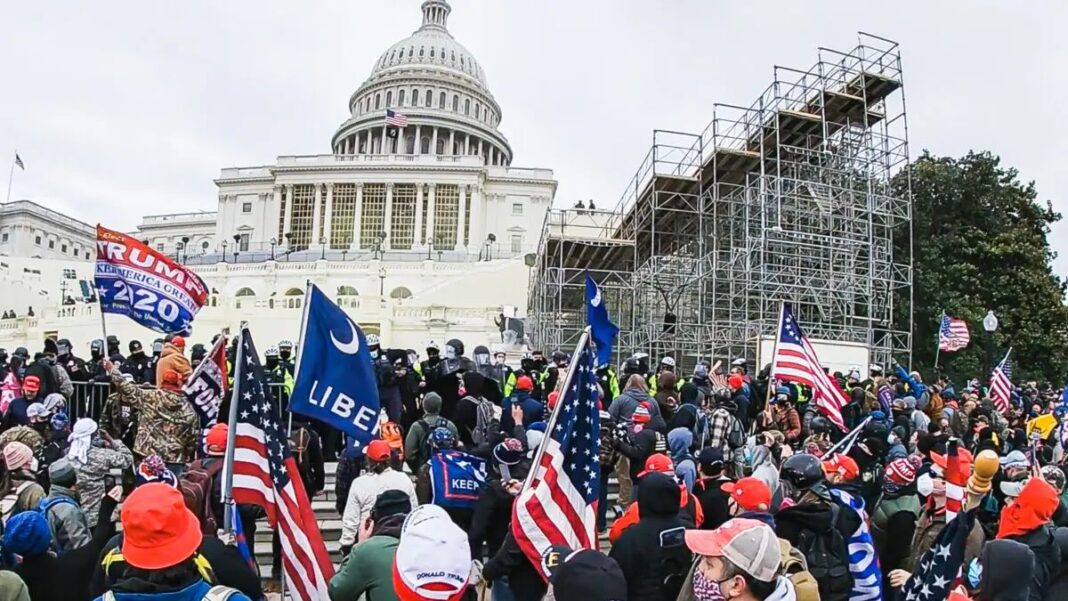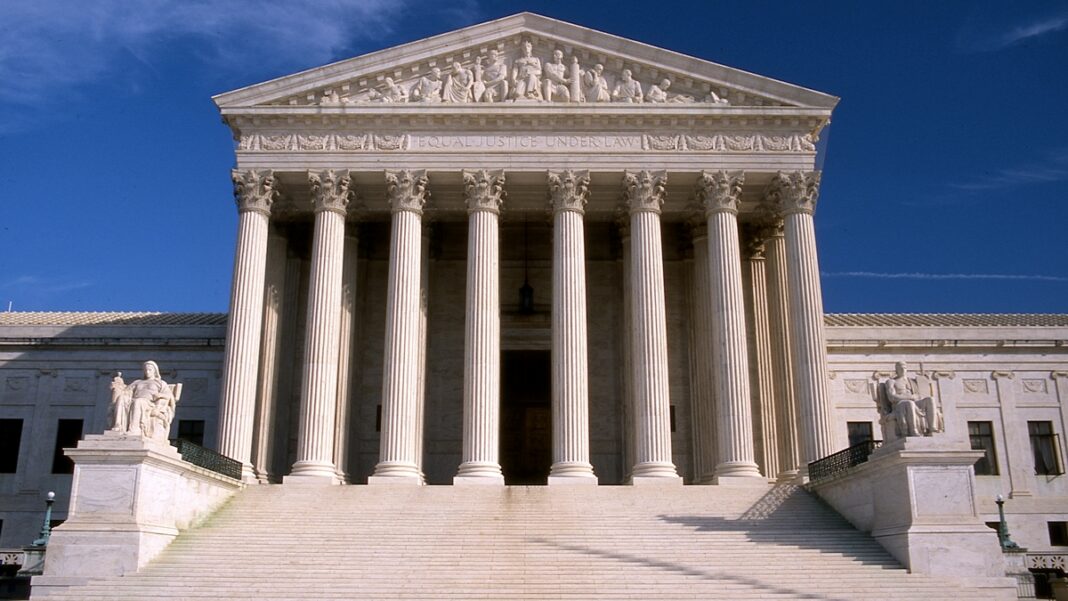Defense attorneys say the U.S. Department of Justice is using the law as a “blatant political instrument to crush dissent.”
Three more criminal-case defendants have joined a petition seeking to have the U.S. Supreme Court review the U.S. Department of Justice’s novel use of an evidence-tampering statute to prosecute those who protested 2020 presidential election results at the Capitol on Jan. 6, 2021.
Defendants Christopher J. Warnagiris, 43, Christopher J. Carnell, 21, and William Robert Norwood III, 40, jointly filed an amici curiae brief (pdf) with the Supreme Court in support of a petition for review of the law filed on July 7 by defendant Edward Jacob Lang, 28.
The men were charged with obstruction of an official proceeding—Title 18 U.S. Code Section 1512(c)(2)—a felony carrying up to 20 years in prison.
The DOJ was given an extended deadline—Sept. 29—by which to file a response to the petition for review.
An eventual Supreme Court ruling on the evidence-tampering statute could have far-reaching implications, as obstruction of an official proceeding is the most widely charged felony in Jan. 6 cases.
Crushing Dissent
The stakes could not be higher, according to defense attorneys.
“It is no overstatement to say the future of the First Amendment hangs in the balance,” wrote attorneys Norman A. Pattis and Steven A. Metcalf in the July 7 petition (pdf) to the Supreme Court. “A statute intended to combat financial fraud has been transformed into a blatant political instrument to crush dissent.”
The attorneys expressed fears that prosecutions based on the obstruction charge could affect the 2024 presidential election.
“As the nation’s attention turns to the 2024 election, there is good reason to fear that the Justice Department’s current use of Section 1512(c)(2) will serve to chill political speech and expression on the eve of one of the most consequential events in American life – the election of the next President of the United States.”
More than 236 defendants have been charged with corruptly obstructing an official proceeding—the counting of 2020 Electoral College votes by a joint session of Congress on Jan. 6. The joint session was interrupted by some six hours when protesters breached the building and rioting broke out on the Capitol grounds.
The statute reads:
“Whoever corruptly- (1) alters, destroys, mutilates, or conceals a record, document, or other object, or attempts to do so, with the intent to impair the object’s integrity or availability for use in an official proceeding; or (2) otherwise obstructs, influences, or impedes any official proceeding, or attempts to do so, shall be fined under this title or imprisoned not more than 20 years, or both.”






